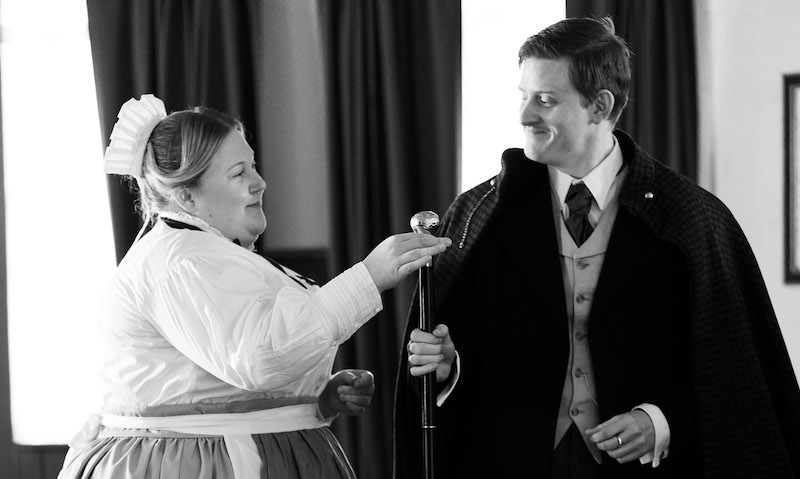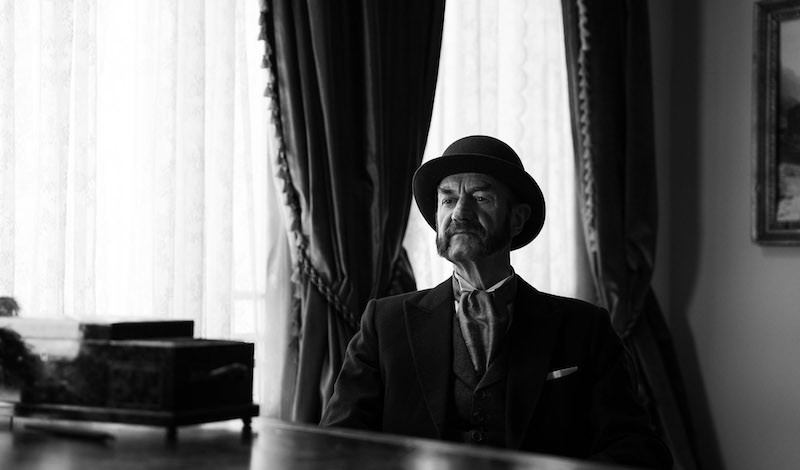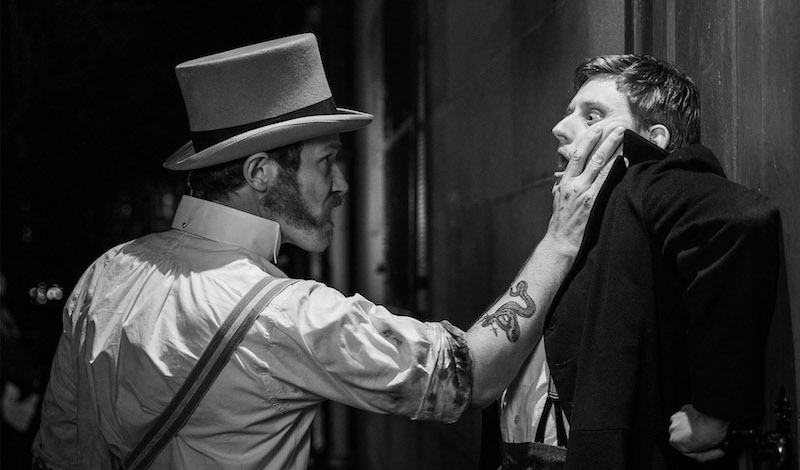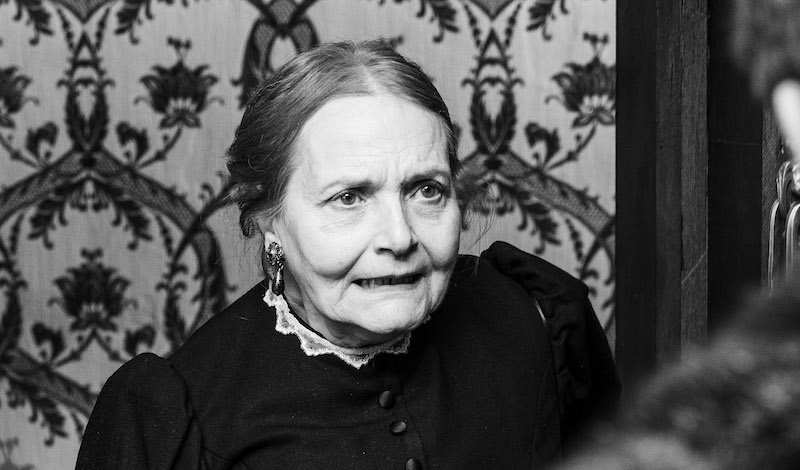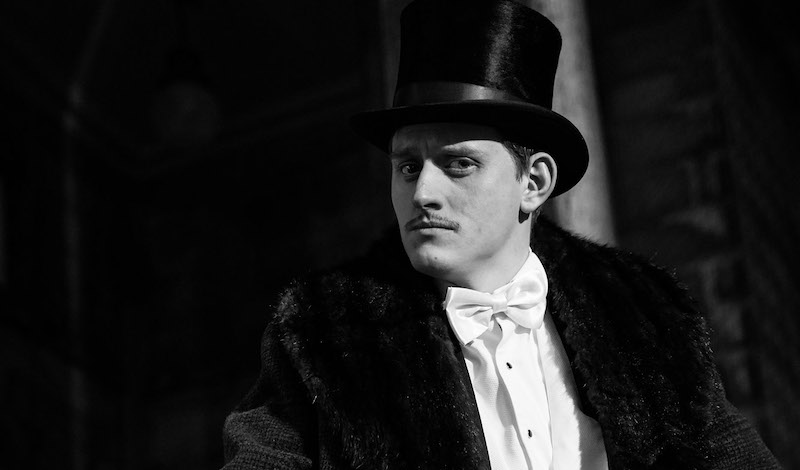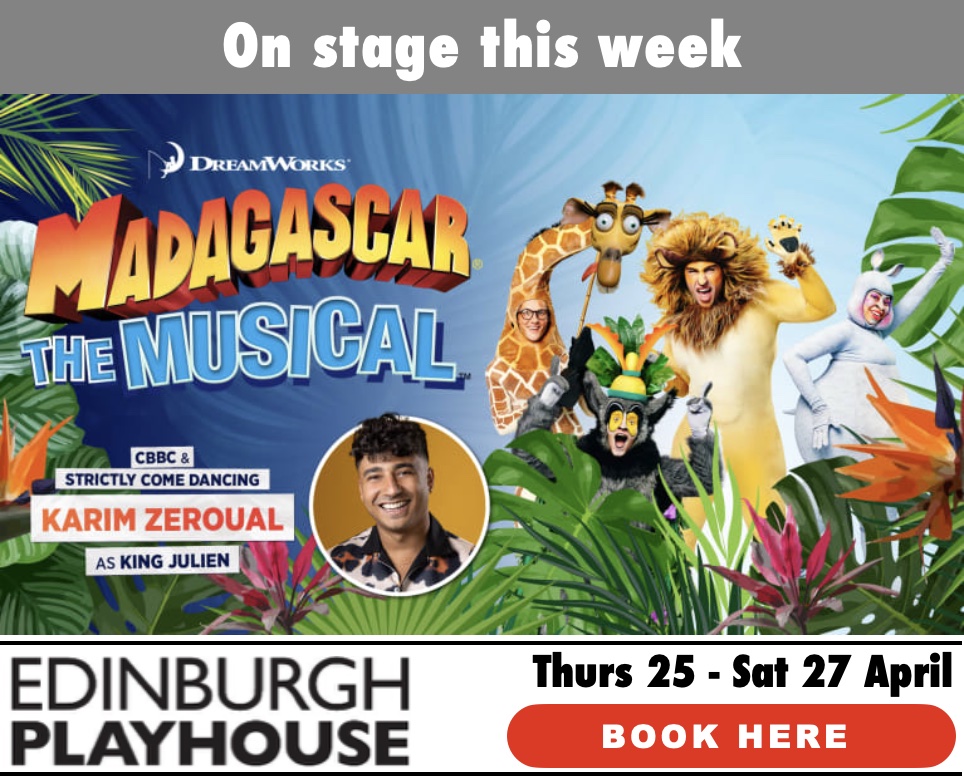The Strange Case of Dr Jekyll and Mr Hyde – Live at Leith Theatre
★★★☆☆ Mixed bag
Leith Theatre: Friday 25 – Sunday 27 Feb 2022
Review by Hugh Simpson
There is much to recommend in The Strange Case of Dr Jekyll and Mr Hyde – Live at Leith Theatre, which is due to be live-streamed into cinemas on Sunday 27 with as-live screenings on March 6.
The production, from the National Theatre of Scotland and Selkie Productions in association with Screen Scotland and Sky Arts, is certainly one of a kind. The novelty of the production, however, does not necessarily lead to unalloyed enjoyment.
Writer-director Hope Dickson Leach’s version of Robert Louis Stevenson’s Gothic novella certainly has a USP. While many productions in the last two years have combined elements of film and theatre, this is the first genuine attempt to stage a live movie.
Aside from a few pre-filmed location scenes, the whole film is acted in various parts of Leith Theatre and screened for the live audience in the theatre’s auditorium. The resulting film will also be shown in more conventional cinemas and also on Sky Arts in the Autumn.
extraordinary technical demands
That such an undertaking has not been done before is due to the extraordinary technical demands such an undertaking places on cast, creative and production teams alike. All concerned (not least cinematographer David Liddell) should be congratulated for producing such a coherent effort.
However, the logistics involved in mounting the production meant that experiencing it in the theatre itself was not the compelling spectacle it might have been.
Perhaps any subsequent attempts at creating such a hybrid might iron out the creases that were apparent here. Or maybe there is a reason why such a collision of forms has not been attempted before; just because it is possible to do something does not mean it should be done.
The promised insights into the film-making process never really materialise. The live audience are often aware of the actors and crew dashing around from set to set and can occasionally glimpse them performing out of the corner of their eye.
headphones
However, the most obvious sign that what is taking place on screen is also happening live elsewhere is when the actors’ dialogue can be heard in the auditorium just before it plays through the provided headphones – not, it has to be said, the only problem that resulted from having the dialogue piped through a headset.
There was an undeniably thrilling, seat-of-the-pants feel to much of it; whether this is a good thing is another matter. In the end, it felt like watching a film made and shown under less than perfect circumstances, and with too many long intervals.
The actual film will probably come across better in a more conventional screening. There is certainly a great deal of interest in Dickson Leach and Vlad Butucea’s adaptation, not least in the way the character of Utterson is presented. Although the novella is told in the third person, Utterson is in many ways a narrator figure, with much of it seen from his perspective.
power without responsibility
Many adaptations relegate him to a minor role or dispense with him altogether. Here he is definitely in the foreground. The themes of corruption, moral ambiguity and power without responsibility (particularly male power) are very much represented in him. Lorn Macdonald’s performance is a magnetic one, embodying the conflicts of the character compellingly.
The prominence given to Utterson does have the unfortunate effect of making Henry Pettigrew’s Jekyll (and Hyde) something of a sideshow. The whole question of the ‘transformation’ into Hyde is glossed over somewhat, and it has to be said that Pettigrew’s Jekyll, less gentlemanly bonhomie than bumptious arrogance, is something of a monster to begin with.
There are certainly compelling hints in the characters’ relationship of what the ‘urges’ that are repressed may be, with Utterson clearly jealous that Hyde has stolen Jekyll from him. This works very well, as does the moving of the setting to Edinburgh; many readers already picture the story as being set here anyway.
The switch works well both geographically and historically. The conflict between human and mechanisation chimes with the then-contemporary capital concerns over migration from both outwith Scotland and other parts of the country. A subplot about the National Monument on Calton Hill works considerably less well.
a welcome helping of Grand Guignol
The exterior of the theatre stands in beautifully for different areas of Edinburgh, with the various parts of the interior making for atmospheric backdrops. The other performers are as accomplished as would be expected form the cast list, with Caroline Deyga, Tam Dean Burn and Alison Peebles providing notably well-drawn characterisations. In an adaptation that prioritises the psychological over the Gothic, David Hayman’s Danvers Carew provides a welcome helping of Grand Guignol.
Teething problems meant that the event finished nearly an hour later than the advertised time. This at least means that some of the film-making process is accurately represented, as it famously involves a great deal of sitting about waiting. It has to be hoped, however, that the chairs on Hollywood films sets are roomier and more comfortable than the remaining balcony seating in the Leith Theatre.
Running time: Two hours 40 minutes (including two intervals)
Leith Theatre, 28-30 Ferry Road, EH6 4AE
Friday 25 – Sunday 27 February 2022
Evenings at 7.00 pm;
Information, tickets and cinema screenings : Details here.
ENDS








